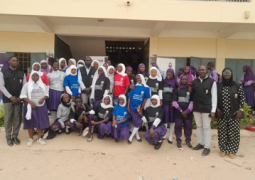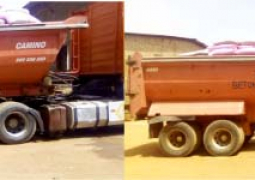In a recent interview with The Point, famers lamented that government’s continued neglect of their plights is greatly affecting rice production in the area as seen in low harvest these years.
They, however, expressed their resolve to bring back the country’s lost glory in terms of agricultural production in the area with the much-needed support from government and partners.
Rice is the new gold in the Sahel amid growing food insecurity and inflation-fatigued markets pushing food prices to novel limits. In The Gambia, rice is the staple food, with a per capita consumption of 117kg per annum, of which only 17% is produced locally.
For Bambo Jaiteh, a tractor operator at Niani Sukuta Central River Region north, low yields and productions and a lack of access to quality farming equipment has greatly hampered rice cultivation in the area.
He said these challenges coupled with unpredictable weather patterns are contributing to rural poverty and hunger.
Alhagie J.J. Kanteh, alkalo of the village, said farmers in the area have constantly lamented and decried some challenges affecting their production and called on government to come to their aid.
Alkalo Kanteh explained that rice which is the country’s main staple crop is cultivated in low-land or ‘Faros’, indicating that the traditional type, developed in the uplands and swamps long before the arrival of the colonial powers, is short-grained and has been left to mainly women, who cultivate this variety throughout the country.
Majula Jaiteh, a resident of Niani Sukuta, reflected on some joyous moments rice cultivation comes with especially during harvesting period and that for many years she cultivates rice to support her family.
According to statistics, rice contributes about 32% of the country’s Gross Domestic Product (GDP), providing employment and income for almost 80% of the country’s population.
"Many of these reasons are believed to be inadequate rainfall, lack of proper policies and management in the sector, poor farming equipment, and lack of credit facilities for the youths and women who are actively involved in this sector for food production."




